오는 27일은 한국전쟁 정전협정이 체결된 지 70년이 되는 날입니다. 휴전으로 전쟁을 중단한 남북한은 서로 다른 길을 걸었고 70년이 지난 지금 모든 면에서 큰 격차를 보이고 있습니다. VOA는 정전협정 이후 한반도를 돌아보고 앞으로의 상황을 점검하는 기획 보도를 마련했습니다. 오늘은 네 번째 순서로 한반도 평화 전망과 과제를 짚어보겠습니다. 이조은 기자가 보도합니다.
김정은 북한 국무위원장은 지난해 말 열린 노동당 전원회의에서 한국을 명백한 적으로 규정했습니다.
[녹취: 조선중앙TV ] “남한이 의심할 바 없는 우리의 명백한 적으로 다가선 현 상황은 전술핵무기 다량 생산의 중요성과 필요성을 부각시켜 주고…]
북한 관영 조선중앙TV는 김 위원장이 전술핵무기의 다량 생산과 핵탄두 보유량을 기하급수적으로 늘릴 것을 주문했다고 전했습니다.
1953년 7월 27일 정전협정 체결로 전쟁은 멈췄지만 70년이 지난 지금도 한반도에는 평화가 정착되지 못했습니다.
따라서 임시적인 정전체제를 매듭짓고 지속 가능한 평화체제를 정착시키는 것이 여전히 한반도에 남은 과제라는 게 전문가들의 진단입니다.
게리 세이모어 전 백악관 대량살상무기 조정관은 25일 VOA와의 통화에서 “지난 70년 동안 미국과 한국이 전쟁 예방 측면에서는 성공적이었다”며 “이는 북한이 한국에 대한 적대 행위를 재개하는 것을 억지할 강력한 미한 군사 동맹이 있었기에 가능했다”고 말했습니다.
[녹취:세이모어 전 조정관] “I think the U.S. and the ROK have been successful in terms of preventing war. So there's been peace for 70 years and the reason for that is because of the strong U.S.- ROK military alliances, which has deterred North Korea from renewing hostilities against the ROK. On the other hand, the Allies have not made any significant progress toward a political resolution that could involve some new relationship between the U.S., between the ROK and the DPRK whether it's unification or some kind of Federation or whatever. So the political hostility remains.”
세이모어 전 조정관은 다만 “미한 동맹은 남북미 사이 새로운 관계를 포함할 수 있는 통일이나 연방 체제 구축과 같은 정치적 해법을 향한 중대한 진전은 이루지 못했다”며 “따라서 (한반도에) 정치적 적대감은 여전히 남아 있다”고 말했습니다.
브루킹스연구소의 한국석좌를 맡고 있는 앤드류 여 가톨릭대 정치학과 교수도 “전반적으로 미국과 한국은 북한의 또 다른 대규모 공격이나 전면적인 침공은 성공적으로 억지해 냈다”고 평가했습니다.
[녹취: 여 교수] “On the whole, the US and ROK governments have managed to successfully deter North Korea from another major attack or full-scale invasion. Although provocations from North Korea have continued throughout the years, the notion of peace through strength through the US-ROK Mutual Defense Treaty and the US-ROK combined forces command has allowed the two sides to avoid a 2nd Korean War. The two governments, however, have had a much more difficult time of advancing peaceful reconciliation with North Korea.”
“비록 북한의 도발이 수년간 계속됐지만 미한 상호방위조약과 한미연합군사령부에 의한 ‘힘을 통한 평화’의 개념은 제2의 한국전쟁을 피할 수 있게 했다”는 설명입니다.
그러나 “미국과 한국 정부는 북한과의 평화적 화해를 진전시키는 데는 어려움을 겪었다”며 “가장 최근인 2018년~2019년 세간의 이목을 끈 일련의 남북 및 미북 정상회담 등 외교적 관여와 화해의 시기가 있었지만 이런 시기가 전쟁이 없는 상태를 넘어 항구적인 평화 상태로 전환되지는 못했다”고 여 교수는 말했습니다.
[녹취: 여 교수] “There have been periods of diplomatic engagement and rapprochement, most recently in 2018-2019 with a series of high profile inter-Korea and US-North Korea summits. However, those periods of rapprochement have not been able to translate into a more permanent state of peace – one that goes beyond the absence of war.
실제로 한국의 문재인 정부 시절인 2018년 4월 남북 정상은 판문점 선언을 통해 종전을 선언하고 정전협정을 평화협정으로 전화하며 평화 체제 구축을 위한 남북미 3자 또는 남북미중 4자회담을 추진한다는 데 합의했지만 이후 별다른 진전을 내지 못했습니다.
같은 해 6월 도널드 트럼프 당시 미국 대통령도 김정은 북한 국무위원장과 싱가포르에서 역사적인 첫 정상회담을 갖고 미북 관계 정상화와 한반도 평화 체제 구축, 한반도 비핵화에 합의하고 이어 2019년 2월 베트남 하노이에서 두 번째 미북 정상회담을 가졌지만 회담은 합의 없이 결렬됐습니다.
트럼프 당시 대통령은 회담 결렬 직후 연 기자회견에서 북한의 요구가 지나쳤다고 말했습니다.
[녹취: 트럼프 대통령] “Basically, they wanted the sanctions lifted in their entirety, and we couldn’t do that. They were willing to denuke a large portion of the areas that we wanted, but we couldn’t give up all of the sanctions for that... We had to walk away from that particular suggestion.”
북한은 미국이 원하는 지역의 상당 부분을 비핵화하겠다고 했지만 그 대가로 기본적으로 모든 제재를 해제해줄 것을 요구했고, 미국은 북한의 그 같은 제안을 받아들일 수 없었다는 것입니다.
이후 남북, 미북 대화의 교착 상태는 미국과 한국에 새 정부가 들어선 지금까지도 계속되고 있습니다.
바이든 행정부는 북한에 대한 제재와 억지력을 유지하면서도 비핵화를 위한 북한과의 외교와 대화에 계속 열려 있다는 입장을 거듭 강조하고 있습니다.
[녹취: 블링컨 장관] "And as we've consistently said both publicly and to pyeongyang, we are prepared to engage in dialogue without preconditions. Unfortunately to date, Pyongyang's answer to that proposal has been to launch more missiles.
토니 블링컨 국무장관은 지난 14일 동남아시아국가연합(ASEAN. 아세안) 관련 회의 참석을 위해 방문한 인도네시아 자카르타에서 개최한 기자회견에서 "우리가 공개적으로 그리고 북한에 일관되게 말했듯이 우리는 전제조건 없이 대화에 관여할 준비가 돼 있다"며 그러나 "안타깝게도 현재까지 이 제안에 대한 북한의 대답은 미사일을 더 발사하는 것"이라고 지적했습니다.
전문가들은 미국과 한국 정부의 다양한 시도에도 한반도 평화가 여전히 난제로 남아 있는 이유는 북한 정권이 협력할 의지가 없기 때문이라는 데 한목소리를 냈습니다.
에반스 리비어 전 국무부 동아태담당 수석부차관보는 “한반도의 진정한 평화는 북한의 합의와 협력을 필요로 한다”며 하지만 “북한은 그런 것을 추구하는 데 관심이 없다는 입장을 계속해서 보여주고 있다”고 말했습니다.
[녹취: 리비어 전 수석부차관보] “But true peace on the peninsula requires North Korea's agreement and cooperation, and Pyongyang continues to demonstrate its lack of interest in pursuing it… North Korea has definitively rejected dialogue, made clear it is now a permanent nuclear state, declared a nuclear first-strike policy, and is pursuing a new goal of seeking international acceptance as a de facto nuclear weapon state.”
리비어 전 수석보좌관은 “북한은 대화를 단호히 거부하고 이제는 영구적인 핵보유국임을 분명히 하는 한편 핵 선제 타격 정책까지 선언했다”며 “북한은 사실상 핵보유국으로서 국제적인 인정을 받겠다는 새로운 목표를 추구하고 있는 것”이라고 분석했습니다.
북한이 이 같은 입장을 고수하는 한 가까운 미래에 한반도에 지속 가능한 평화가 찾아오기는 어려울 것이라는 게 전문가들의 대체적인 전망입니다.
리비어 전 수석부차관보는 “바이든 대통령과 윤 대통령이 채택한 미국의 확장억지 공약 강화 등 강력한 억지 태세는 현재 한반도의 평화와 균형을 유지하고 북한의 오판을 방지하기에 충분할 것”이라고 밝혔습니다.
[녹취: 리비어 전 수석부차관보] “The strong deterrent posture adopted by the United States and the ROK under Presidents Biden and Yoon, including the newly strengthened U.S. extended deterrent commitment, should be sufficient to maintain the current peace and balance on the Korean Peninsula and prevent Pyongyang from miscalculating…Ultimately, permanent peace on the Korean Peninsula requires the denuclearization of North Korea and the establishment of a mechanism to replace the Armistice Agreement. Unfortunately, neither of these two things seems likely, or even possible, today because of Pyongyang's continuing pursuit of nuclear weapons and ballistic missiles, the DPRK's decision that it will remain a nuclear power, and North Korea's ongoing effort to use its nuclear and missile capabilities to try to undermine the U.S.-ROK alliance and change the balance of power on the peninsula, including by force.”
하지만 “궁극적으로 한반도의 항구적인 평화는 북한의 비핵화와 정전협정을 대체할 체제 구축을 필요로 한다”며 “안타깝게도 이 두 가지 모두 가능성은 낮고 심지어 불가능해 보인다”고 말했습니다.
이어 “이는 북한의 지속적인 핵무기 및 탄도미사일 추구와 핵보유국 유지 결정, 그리고 핵과 미사일 능력을 이용해 미한 동맹을 약화하고 무력 등을 통해 한반도 힘의 균형을 바꾸려는 북한의 현재 노력 때문”이라고 지적했습니다.
리비어 전 수석부차관보는 “이런 도전에 맞서 미국과 한국의 핵심 우선순위는 현재의 평화를 유지하고 강력하고 방심하지 않는 억지력을 유지하는 한편 북한과의 대화의 문을 열어두고 비핵화와 항구적인 평화를 이루기 위해 북한이 협상 테이블로 복귀하도록 설득하는 것이 돼야 한다”며 “미국과 한국은 정확히 이런 행동 경로를 추구하고 있다”고 말했습니다.
[녹취: 리비어 전 수석부차관보] “In the face of this challenge, the key U.S. and ROK priorities should be to preserve the current peace, maintain a strong and vigilant deterrent, keep the door open to dialogue with North Korea, and convince Pyongyang to return to the negotiating table to achieve denuclearization and a permanent peace. Washington and Seoul are pursuing exactly this course of action.”
해리 해리스 전 주한 미국 대사는 한반도 평화를 위해 필요한 것은 “한국에 대한 북한의 공격 시도 등 북한의 모든 위협에 대응할 수 있는 완전한 군사 준비 태세를 보장하는 것과 전제조건 없이 북한과 대화하겠다는 화해의 손길을 계속 내미는 것”이라고 강조했습니다.
[녹취: 해리스 전 대사] “The steps that must be taken are, in fact, being taken: ensure full military readiness to respond to all threats from the North including any attempt by the North to attack the South; continue to extend the olive branch of talks with the North without preconditions…maintain the strict sanctions regime… While I'm not optimistic peace on the Peninsula will happen anytime soon, I do believe that the current South Korean and American policies and approaches -- keeping the Alliance at the center, strengthening the combined military forces of the ROK and U.S., and always negotiating from a position of strength and not weakness -- are the only ways to ultimately achieve peace on the Peninsula.”
또한 “엄격한 제재 체제를 유지해야 한다”며 이런 조치들은 모두 미국과 한국이 현재 취하고 있는 것이라고 말했습니다.
해리스 전 대사는 “한반도 평화가 곧 실현될 것이라고 낙관하지는 않지만 동맹을 중심에 두고 한미 연합 군사력을 강화하는 한편 항상 나약함이 아닌 힘의 우위에서 협상해야 한다는 현재 미한 양국의 정책과 접근만이 궁극적으로 한반도 평화를 이룰 수 있는 유일한 방법이라고 믿는다”고 밝혔습니다.
여 교수는 북한의 비핵화 조치가 필요하다는 점을 지적했습니다.
“과거 북한이 비핵화를 향한 조치를 취할 의향을 보일 때 미국은 더 유연한 접근법을 보였다”는 겁니다.
[녹취: 여 교수] “ I believe the U.S. has been more flexible in the past when North Korea shows a willingness to take steps towards denuclearization. Unfortunately, the regime currently has not indicated any intention to move towards denuclearization so all parties – South Korea, North Korea, and the U.S. - are at a stalemate. We need to see more dialogue between the US and North Korea…to gain a better understanding of where North Korea is at in the post-Covid environment. If there is a way to resume discussions on issues such as humanitarian assistance or family reunions between the two Koreas that might also help create space for more engagement…However, the biggest challenge has been persuading North Korea to come back to the diplomatic table. To achieve a more permanent peace on the Peninsula beyond the absence of war, North Korea must also be open to diplomacy.”
하지만 “안타깝게도 북한 정권은 현재 비핵화를 향해 나아갈 의사를 전혀 표시하지 않고 있다”며 “그래서 당사국인 한국, 북한, 미국 모두가 교착 상태에 있는 것”이라고 지적했습니다.
여 교수는 “북한이 신종 코로나바이러스 대유행 이후 어떤 상황에 있는지 더 잘 이해하기 위해 미북 간 더 많은 대화가 있어야 한다”며 “인도적 지원이나 남북 이산가족 상봉과 같은 문제에 대한 논의를 재개할 방법이 있다면 더 많은 관여를 위한 공간을 조성하는 데 도움이 될 수도 있을 것”이라고 말했습니다.
다만 “가장 큰 도전은 북한이 외교 테이블로 복귀하도록 설득하는 것”이라며 “전쟁이 없는 상태를 넘어 한반도의 더욱 영구적인 평화를 이루기 위해 북한도 외교에 열려 있어야 한다”고 강조했습니다.
VOA 뉴스 이조은입니다.
정전협정 체결 70년을 되돌아보고 앞으로 방향을 조망해 보는 기획보도, 다음 시간에는 한반도 통일이 한국에 제공할 기회에 대해 살펴보겠습니다.
[정전협정 70주년 기획] 4. “한반도 항구적 평화’ 여전히 갈 길 멀어…북한 호응 필요” - 한국어 방송 - VOA Korean
Read More
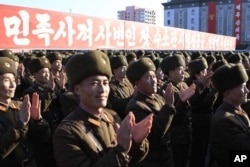
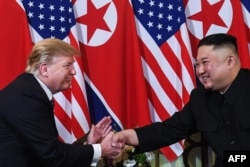
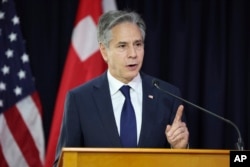
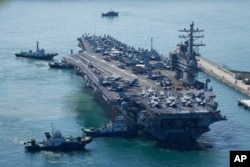
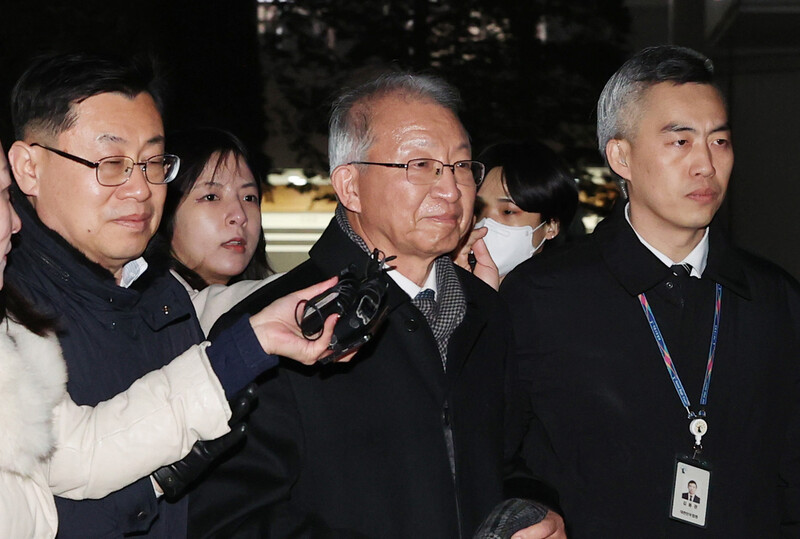
No comments:
Post a Comment